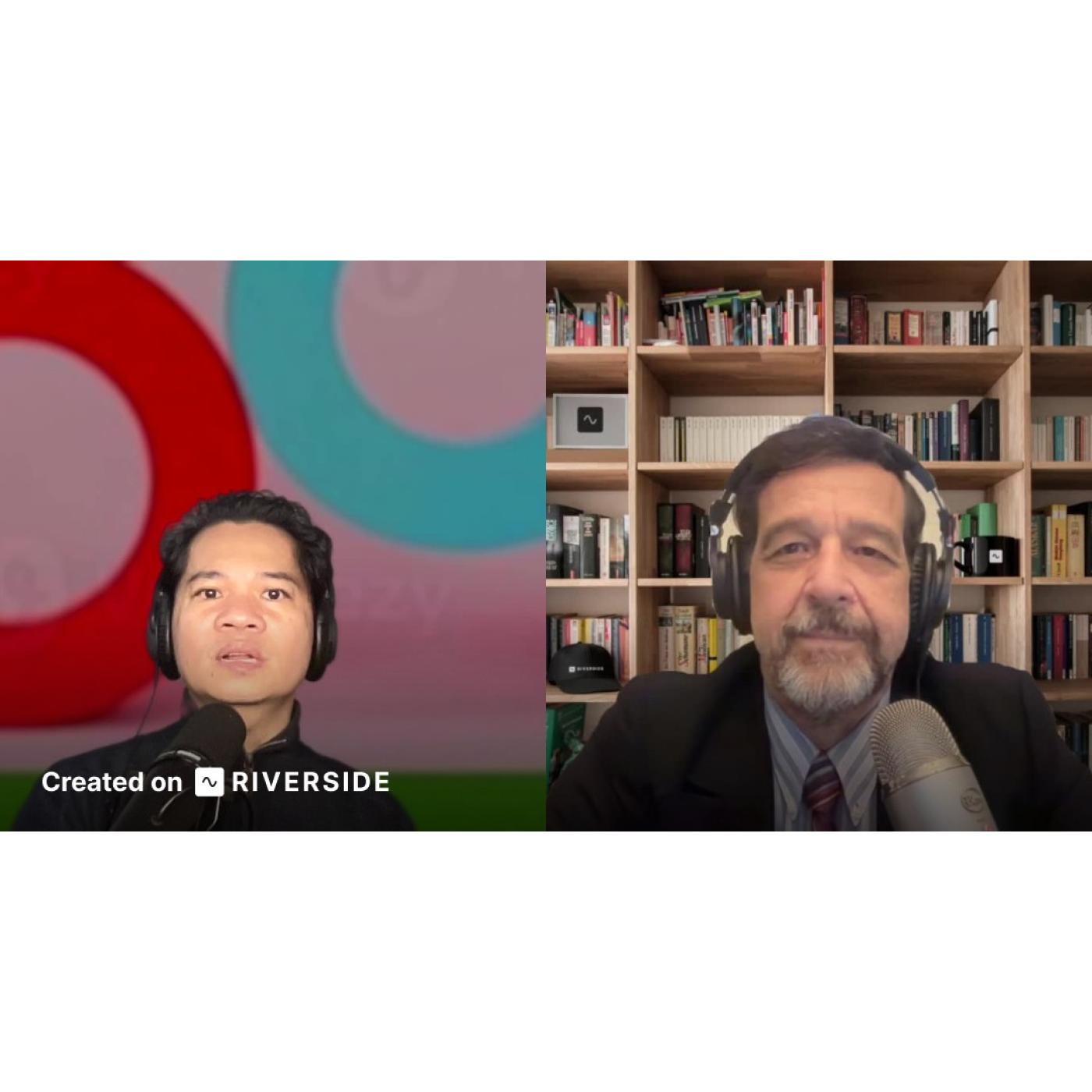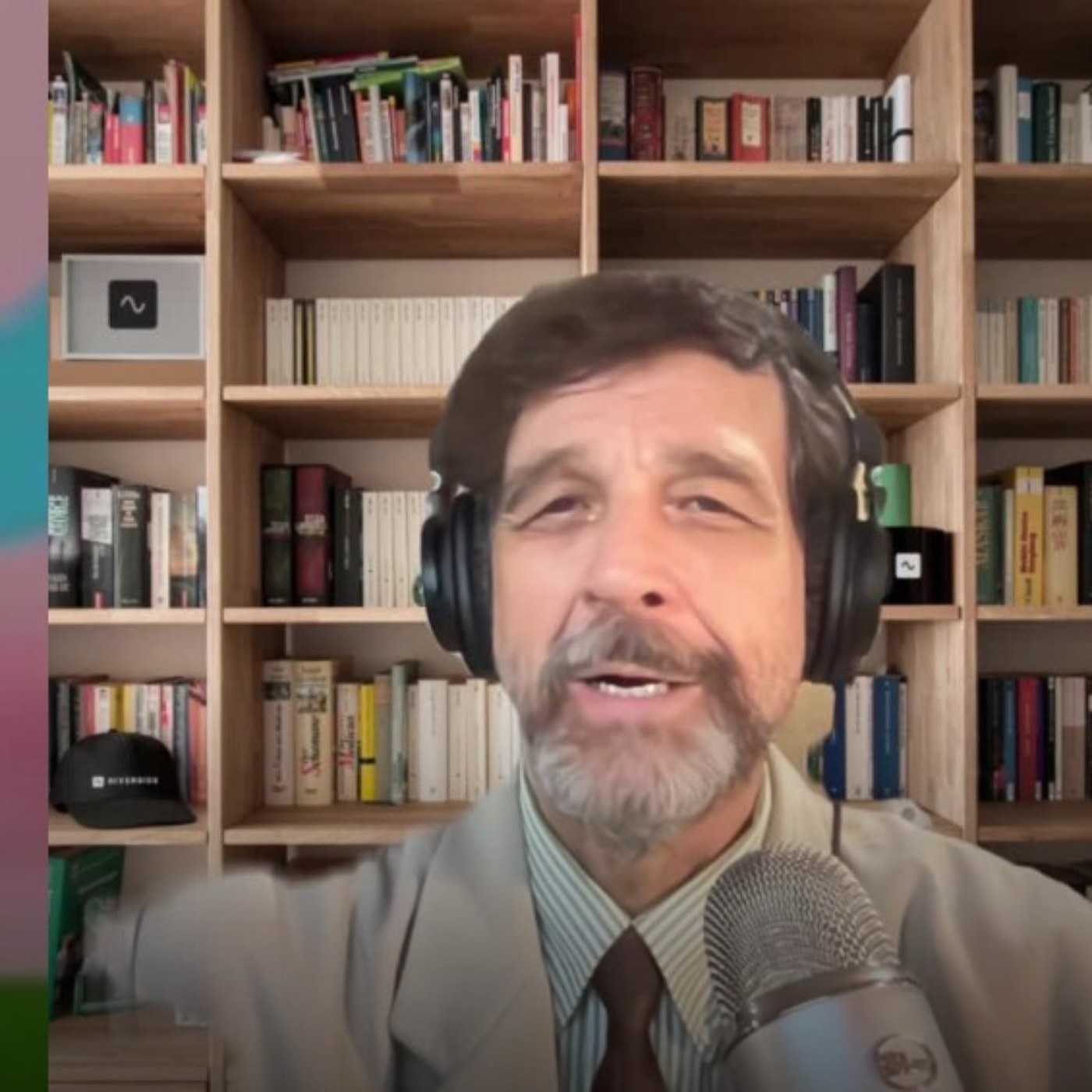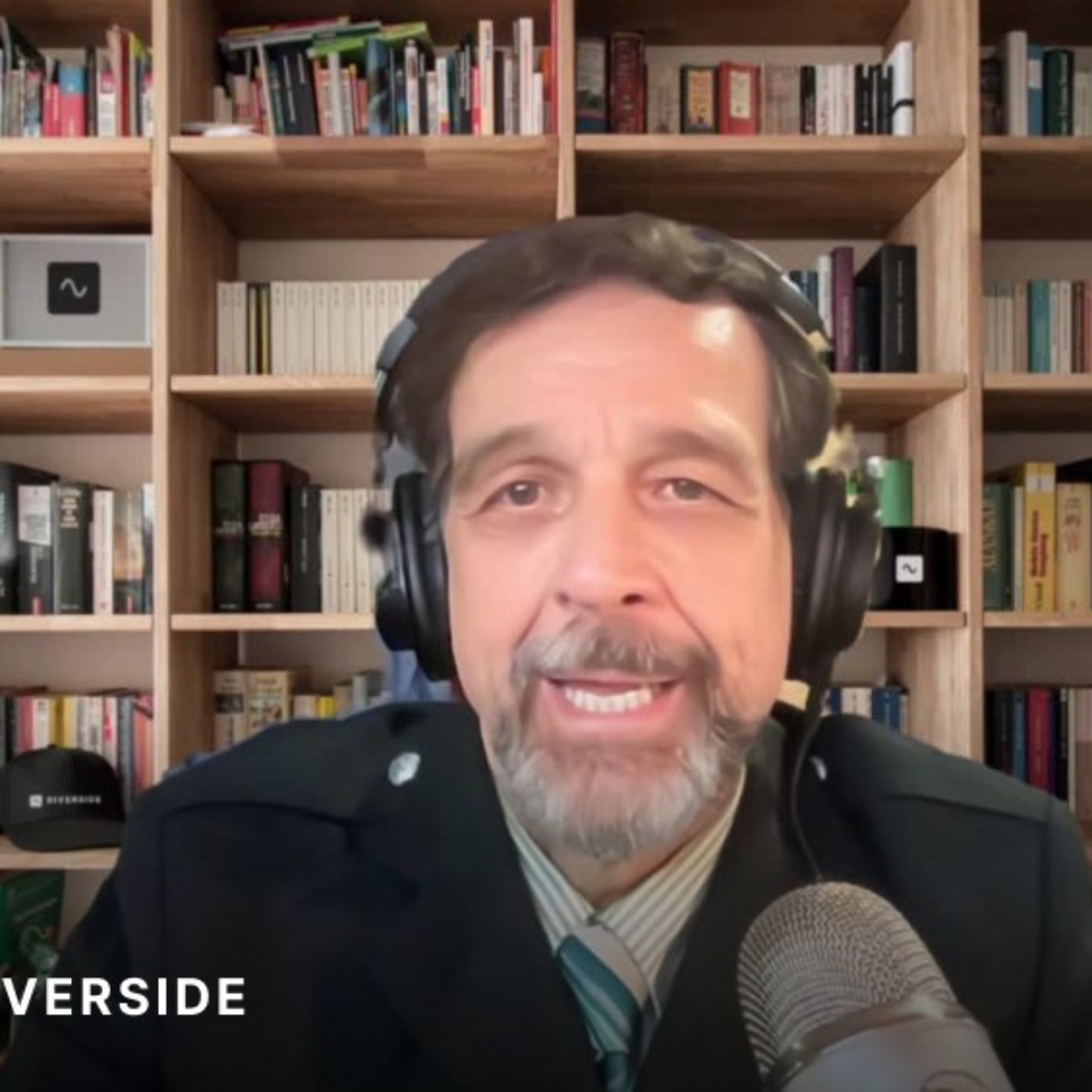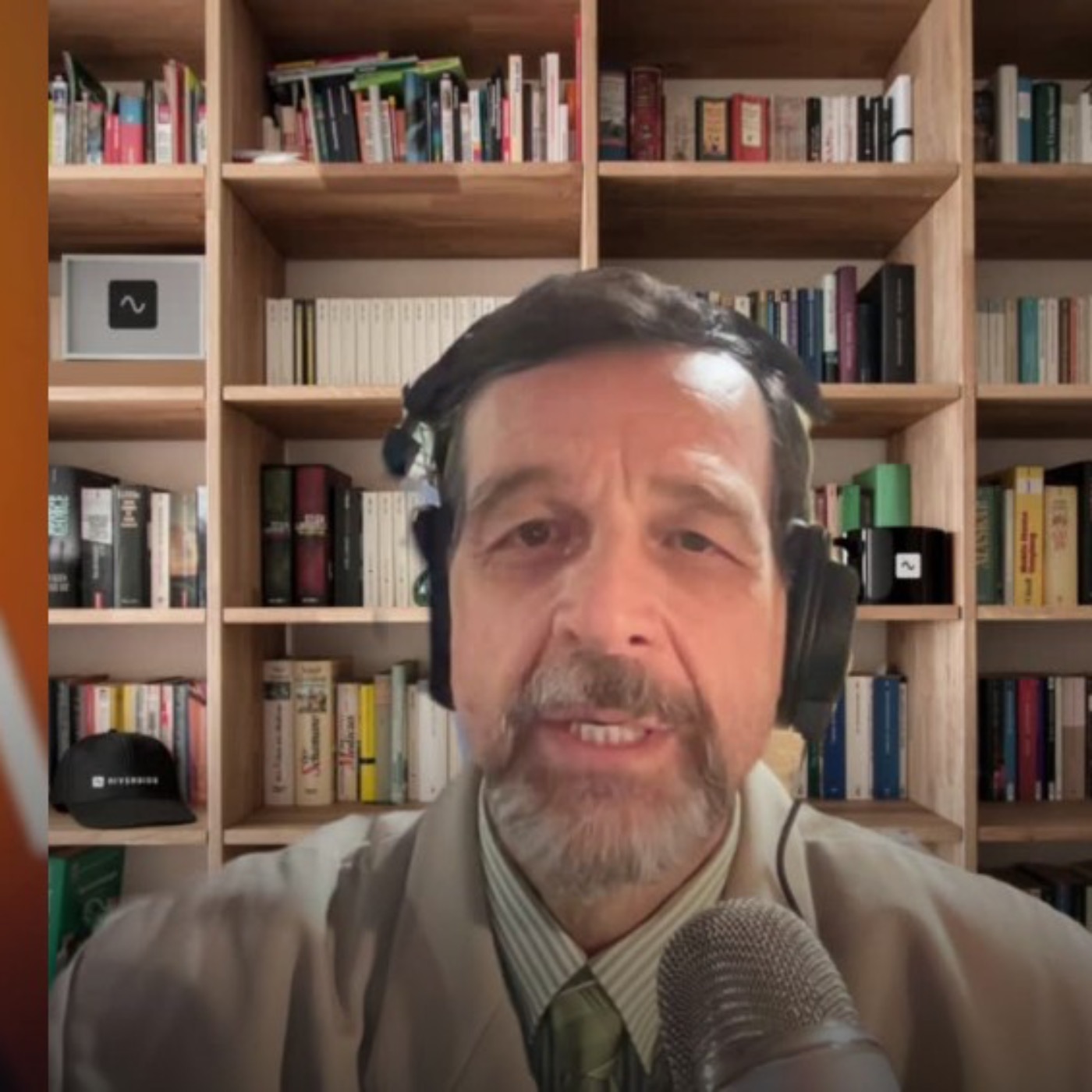Discover Sex 101 and Relationships
Sex 101 and Relationships

Sex 101 and Relationships
Author: Daniel Lucas
Subscribed: 1,091Played: 3,238Subscribe
Share
© Daniel Lucas
Description
Sex 101 Sex and Relationships Podcast, is to foster a healthy and informed approach to sex and relationships in today's world. We are dedicated to providing a judgment-free, educational, and entertaining platform that empowers individuals of all backgrounds to explore, understand, and navigate the complexities of human intimacy and connections. Hosted on Acast. See acast.com/privacy for more information.
41 Episodes
Reverse
Love Letters, now in its fourth season, welcomes Jackie Pelegrin as a special guest to explore the timeless question of what it truly means to define love. In this heartfelt episode, Jackie opens up about her personal reflections, experiences, and philosophies that shape her understanding of love in its many forms. Together, we dive into the nuances of affection, commitment, and the deeper connections that bind people across different stages of life. Jackie’s perspective brings a fresh lens to the conversation, blending emotional insight with genuine warmth. This episode invites listeners to reflect on their own definitions of love and how it continues to shape their journeys.
Jesus and the Woman at the Well: A Sexual Theology of Redemption reveals a powerful encounter where shame is met with grace and brokenness is transformed into wholeness. In this story, Jesus does not condemn the Samaritan woman for her tangled history of relationships, but instead acknowledges her truth and offers living water that quenches a deeper thirst than physical desire. This moment reframes sexuality not as a source of guilt but as a pathway through which redemption can shine, showing that intimacy, when healed and rightly ordered, becomes a reflection of God’s love. The well thus becomes more than a meeting place—it becomes a sanctuary of restoration, where the human longing for acceptance is met with divine embrace.
Stephanie ZwonitzerUrology and Sexual Health Nurse PractitionerDr. Stephanie Zwonitzer, DNP, CRNP developed a desire to further the discussions and education around sexual health and wellness since being the field of Urology opened her eyes to this unmet need. Born and raised in Wisconsin, Stephanie has a deep love for cheese, brats, and the Green Bay Packers. Stephanie started her career as a nurse after graduating with her Bachelors in the Science of Nursing degree from the University of Nebraska Medical Center in Omaha, NE. She worked as a cardiac nurse, medical-surgical nurse, and a geriatric nurse before becoming a nurse practitioner. Dr. Z started to notice a desire to know more about why decisions were made for her patients and what led to one decision over another. It was at that time that she realized she needed to go back to school to become a nurse practitioner. Stepahnie earned her masters and doctorate degrees from the University of South Alabama in Mobile AL. She did both degrees while working full time and raising her two children. Superwoman? maybe....sleepy for six years straight....definitely.
"Thirst and Grace: A Sexual Theology from John 4" explores the powerful encounter between Jesus and the Samaritan woman at the well, transforming a moment of physical thirst into a profound dialogue about spiritual longing, intimacy, and grace. The story invites us to see human desire not as something shameful, but as a pointer to a deeper thirst for God’s love—a longing only living water can quench. By reframing sexuality through the lens of divine grace, John 4 becomes more than just a narrative of cultural barriers broken; it becomes a theology of embodied longing redeemed. It challenges us to embrace our human thirsts honestly, recognizing that true satisfaction is found not in fleeting pleasures, but in the grace that flows from Christ’s eternal well.
Sex 101, in its first season, proudly features VC Pitt as my guest, diving deep into the transformative topic of Healing from Sexual Shame. Together, we explore the journey of overcoming guilt, fear, and past trauma, opening the door to reclaiming confidence and rediscovering pleasure. This conversation is both empowering and enlightening, offering hope and practical wisdom for anyone seeking to release the burdens of shame and embrace their authentic self. It is an episode designed to inspire healing, foster understanding, and remind us that every individual deserves a healthy and liberated relationship with their sexuality.
For centuries, the Church's paradoxical veneration of the Virgin Mary and its historical condemnation of the sexual woman created a devastating schism within the feminine soul, fracturing female identity into two impossible, mutually exclusive archetypes: the pure, ethereal saint and the sinful, carnal temptress. This theological and cultural dichotomy forced women into a crippling double bind, demanding they embody impossible ideals of asexual piety while simultaneously branding their natural humanity and sexuality as inherently corrupt and shameful. By splitting the feminine whole into the "Virgin" and the "Whore," the institution did not merely categorize women—it weaponized these labels to control female autonomy, agency, and desire, leaving generations of women to navigate a spiritual and psychological landscape where they could never be both holy and fully human.
Sex 101, now in its first season, presents an eye-opening episode titled Breaking the Silence: How Communication Shapes Intimacy. This episode dives into the powerful role that open and honest dialogue plays in building deeper connections between partners. By addressing the barriers that often prevent couples from speaking freely about their needs and desires, the discussion highlights how communication can transform vulnerability into strength and intimacy into lasting trust. With thoughtful insights and engaging conversation, Sex 101 sets the stage for a meaningful journey into understanding love, desire, and connection.
In the scorched aftermath of collapse, where traditional communities have crumbled to dust, a new and desperate form of connection emerges: love in the time of apocalypse, curated on a cracked screen that glows against the perpetual twilight. This is where ancient wisdom—the practical knowledge of suturing a wound, purifying water, or identifying edible roots—meets the frantic swipe, a last vestige of a dead world’s social architecture. Profiles no longer boast of hobbies or high-paying jobs, but list skills like ammunition reloading, mechanical engineering, or radiation treatment, each swipe right a calculated survival strategy masquerading as romantic hope. In this stark new reality, finding a partner is less about finding a soulmate and more about finding a sole mate—a single, trusted ally whose strengths complement your weaknesses, where a match isn't the start of dinner plans but a blood pact against the encircling darkness, proving that even at the end of the world, the human heart will stubbornly seek another, not just for passion, but for the profound wisdom required to see tomorrow.
In the very first season of Sex 101, I, Daniel Lucas, open the conversation about intimacy, health, and self-discovery with a powerful episode featuring Beauty, Worth, and Amy Lenius as my special guest. Together, we dive into the often-overlooked yet life-changing topic of hormonal imbalance, exploring how it impacts relationships, confidence, and overall well-being. Amy brings both expertise and compassion to the discussion, offering insights that empower listeners to understand their bodies better and embrace their worth. This isn’t just science—it’s a journey into reclaiming balance, beauty, and vitality. Join us as Sex 101 begins its mission to educate, inspire, and spark meaningful conversations about the deeper connections that make us human.
True beauty is not a currency to be earned in the marketplace of trendy features and airbrushed perfection, but the inherent signature of a human soul made visible. It is a light that shines from the unassailable core of human dignity, a dignity that exists not in spite of our perceived flaws, but often because of them—in the stories etched by laughter and grief upon a face, the strength carried in a body that has endured, and the unique symmetry of a spirit that cannot be replicated. Our worth is not a variable equation measured against the fickle ruler of modern standards, which shrink and expand with the seasons; it is an immutable, non-negotiable fact bestowed by our very existence. To reclaim this truth is to perform the most radical act of defiance: to look in the mirror and see not a problem to be fixed, but a person to be honored, to look at another and recognize the same inviolable light, and to understand that dignity, and thus beauty, is never given—it is only ever acknowledged.
The Wedding Bed and the Upper Room stand as profound, paradoxical pillars of the Christian narrative, embodying the full spectrum of God's engagement with humanity—from intimate incarnation to ultimate redemption. In the Wedding Bed, we witness the sacred, earthy reality of God entering human history not as a distant deity, but through the vulnerable flesh of a baby, born from the union of a man and woman, sanctifying human love, family, and the very physicality of our existence. This act of humble embodiment finds its completion in the Upper Room, where the same God, now in the person of Christ, shares a final meal of profound fellowship before willingly surrendering that body to the cross, transforming the ultimate symbol of shame into the ultimate instrument of grace. Together, these two spaces tell a unified story: God dignifies our most intimate human experiences by entering into them, and ultimately transfigures them through a sacrifice that makes all things new, inviting us to see the divine in the ordinary and redemption in the broken. Hosted on Acast. See acast.com/privacy for more information.
Naked and Not Ashamed: What Eden Tells Us About Erotic RestorationIn a world saturated with distorted messages about sexuality—where desire is often reduced to either shameful secret or commercialized commodity—this bold work returns to humanity’s original story to reclaim a sacred vision of erotic wholeness. Revisiting the Eden narrative not as a tale of fall and failure, but as a blueprint for intimacy, the book invites readers to imagine a sexuality free from exploitation, fear, and alienation—one rooted in vulnerability, mutuality, and awe. It argues that true erotic restoration begins when we shed not only our physical coverings but the deeper layers of performance, objectification, and trauma, rediscovering what it means to be fully known and fully loved without shame. By weaving together theology, psychology, and personal testimony, this transformative exploration doesn’t just diagnose brokenness; it offers a radical and hopeful path back to embodied belonging, where the body is not a problem to be solved but a gift to be cherished—a sacred echo of the original, unbroken harmony between self, other, and the divine. Hosted on Acast. See acast.com/privacy for more information.
Kissing in the Ruins: Healing After Sexual Betrayal in Love* is a raw and redemptive exploration of the emotional devastation caused by infidelity and the difficult but possible path toward restoration. The book, whether a memoir, self-help guide, or therapeutic work, delves into the complex layers of betrayal—shame, shattered trust, and the struggle to rebuild intimacy. Rather than offering quick fixes, it acknowledges the deep wounds left by broken vows while also illuminating the resilience of love when both partners commit to honesty, forgiveness, and hard emotional labor. With a blend of personal narrative, psychological insight, and perhaps spiritual reflection, *Kissing in the Ruins* speaks to those navigating the wreckage of betrayal, offering hope that even in the ruins, love can find a way to heal—if both hearts are willing. Hosted on Acast. See acast.com/privacy for more information.
In a culture that often equates masculinity with control and conquest, the idea of sexual love as an act of attentive presence—rather than domination—remains radical. *Strong back, soft eyes* suggests a balance of strength and tenderness: the courage to be vulnerable, the discipline to listen, and the humility to prioritize mutual pleasure over performance. This approach challenges traditional scripts of male sexuality, which often emphasize aggression over intimacy, and instead invites men to cultivate both confidence and sensitivity. Rooted in emotional intelligence and respect, it reframes erotic love as a shared journey rather than a one-sided transaction. By embracing this ethos, men can forge deeper connections—ones where desire flourishes not through power, but through partnership, trust, and the quiet art of truly seeing another. Hosted on Acast. See acast.com/privacy for more information.
Naked and Unashamed: Sex, Longing, and the Redemption of Desire*, which tackles the deeply personal and spiritual dimensions of human intimacy. How did your journey lead you to explore the intersection of sex, longing, and faith, and what inspired you to frame desire as something that can be redeemed? Hosted on Acast. See acast.com/privacy for more information.
In the digital age, the pervasive accessibility of pornography has reshaped male identity, often eroding emotional depth and authentic connection. The endless stream of pixelated fantasies fosters unrealistic expectations, desensitizing the heart to genuine intimacy and reducing relationships to mere transactions. This overexposure can dull empathy, replacing vulnerability with a performative masculinity that prioritizes instant gratification over meaningful bonds. As men navigate this landscape, the constant dopamine hits from screens risk isolating them from real-world relationships, leaving a void where trust and emotional resilience once stood. The challenge lies in reclaiming the heart, seeking purpose beyond the fleeting allure of a pixelated world. Hosted on Acast. See acast.com/privacy for more information.
The topic "When Sex Lost Its Soul: How the Enlightenment, Freud, and Tinder Gutted Eros" explores theprofound shift in how society perceives and experiences intimacy, tracing the erosion of sex's deeper emotionaland spiritual dimensions. The Enlightenment's emphasis on reason over passion began to strip eros of itsmystical allure, reducing it to a mechanical act. Freud's psychoanalytic theories further framed sex as a primalurge, often detached from love or transcendence. In the modern era, apps like Tinder have accelerated thistrend, prioritizing instant gratification and transactional encounters over soulful connection. This narrative reflectsa cultural loss, yet it also invites reflection on how we might reclaim the sacred, transformative power of eros in aworld dominated by logic, instinct, and swipes. Hosted on Acast. See acast.com/privacy for more information.
She’s in the Lyrics, but Never in the Room: Pop Music’s Imaginary Lover delves into the fascinating trope of the idealized woman who exists only in melody and metaphor. From chart-topping hits to soulful ballads, pop music has long been enchanted by muses who are more fantasy than flesh—perfect, elusive, and emotionally untouchable. These lyrical figures often reflect the songwriter’s desires, regrets, or unattainable dreams, serving as emotional placeholders rather than real people. This imaginary lover becomes a canvas for projection, allowing listeners to connect with their own hopes and heartaches. Though she’s never truly present, her absence is precisely what gives her such powerful, enduring presence in the world of pop. Hosted on Acast. See acast.com/privacy for more information.
Sex has been stripped of its sacred shadow and flattened into a commodity—exhausted by algorithms, pornified aesthetics, and the tyranny of "performance." Where intimacy once held echoes of the divine—a merging of bodies as ritual, a portal to vulnerability or transcendence—it now often collapses into transactional swipe culture, medicalized function, or self-optimization project. We’ve traded *mystery* for metrics, reducing eros to friction and orgasm counts while starving for what was lost: the trembling awe of true presence, the risk of soul-deep seeing, the ancient intuition that lovemaking could touch the eternal. Beneath the fatigue of curated desire lies a hunger not for more sensation, but for *meaning*—a reclaiming of sex as territory where ecstasy isn’t extracted, but discovered in the wild, uncharted wilderness of human connection. Hosted on Acast. See acast.com/privacy for more information.
The stark declaration "Porn is More Fun Than God" isn't just blasphemy; it's a raw symptom of a deeper, often unarticulated human ache.** It points to a culture starved for immediate, effortless transcendence and connection. Pornography, like many addictive escapes, offers a potent, predictable cocktail: intense sensory overload, instant (though fleeting) gratification, anonymity, and the illusion of intimacy without vulnerability or demand. It bypasses the slow, often arduous work of cultivating meaning, wrestling with doubt, or building real relationship – whether with the divine or another flawed human. **God**, or the pursuit of the sacred, represents something profoundly different: a call to depth, to mystery, to being truly *seen* and loved in one's entirety, flaws included. It requires patience, faith in the unseen, uncomfortable self-confrontation, and the vulnerability of authentic connection. When the ache for transcendence, belonging, or relief from inner emptiness feels overwhelming, the easier, faster, more controllable "fun" of the screen can seem irresistibly superior to the demanding, often silent mystery of the sacred. The tragedy isn't just the addiction itself, but the misdirection of a fundamental human longing – the yearning for ecstasy, union, and release – towards a counterfeit that ultimately deepens the isolation and emptiness it promises to fill. The real question beneath the provocative statement isn't about entertainment value, but why the authentic path to fulfillment feels so inaccessible, demanding, or silent that the simulacrum becomes the preferred, devastatingly hollow refuge. Hosted on Acast. See acast.com/privacy for more information.












